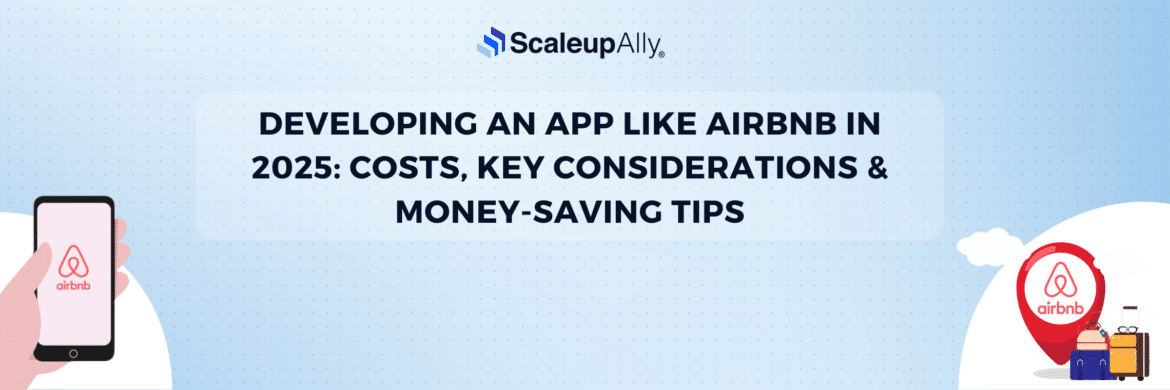
How to Develop a ReactJS Mobile App for Your Business?
Suprabhat Sen | December 20, 2023 , 7 min read
Table Of Content
ReactJS has been widely popular since its inception. Its flexibility is a major reason for its popularity, with about 68.9% of developers using it. Consequently, ReactJs development is considered the top choice for creating effective content quickly, whether for web or mobile apps.
This article will examine how to develop a ReactJS mobile app for your business and why ReactJS is a wise decision for building enterprise apps. We’ll also discuss the advantages of React JS and important considerations you should keep in mind before opting for ReactJS.
What is ReactJS?
React stands out as the preferred and widely used open-source JavaScript library for front-end web development and interactive UI/UX. Originating from the renowned tech giant Meta in 2015, React has user-friendly features and libraries.
Furthermore, ReactJS enables the creation of web applications with precision, scalability, flexibility, and user-friendly design.
Let’s explore how to develop a ReactJS App for your business.
Benefits of Using ReactJS for App Development
Before we look at developing a ReactJS mobile app, let’s explore the compelling advantages that make ReactJS an ideal choice for businesses of all sizes.
-
Efficient User Interfaces
ReactJS allows for the creation of highly responsive and interactive user interfaces. Its virtual DOM (Document Object Model) efficiently updates only the necessary components, reducing load times and enhancing user experience.
-
Reusable Components
ReactJS advocates for a modular development approach, fragmenting UIs into reusable components. This expedites the development process while guaranteeing consistency and maintainability throughout the application.
-
Fast Development with Hot Reloading
The hot reloading feature in ReactJS facilitates real-time code changes, enabling developers to witness the effects instantly. This accelerates the development cycle, making it faster and more efficient.
-
SEO-Friendly
ReactJS can be rendered on the server side, enhancing its search engine optimization capabilities. This is crucial for improving the app’s visibility and accessibility on the web.
How to Develop a ReactJS Mobile App for Your Business
Now that we’ve established why ReactJS is a stellar choice, let’s outline a step-by-step guide to developing your business’s mobile app using ReactJS.
1. Define Your Purpose and Target Audience
Clearly articulate the purpose of your mobile app and identify your target audience. Understanding your users’ needs is fundamental to crafting an app that resonates with them.
2. Conduct a Comprehensive Topic Research
Conduct thorough research on your chosen app topic, analyzing competitors and identifying unique features that can set your app apart. This is a critical step in ensuring your app meets the demands of your audience.
3. Develop a Creative Direction
Develop a creative direction for your app, including design elements, color schemes, and branding. This will give your app a distinctive identity that aligns with your business’s overall brand.
4. Outline Creation
Develop a comprehensive outline that includes your app’s features and functionalities. This will serve as a roadmap during development and help create a structured and efficient application.
5. Implementation
Start the implementation phase by establishing your development environment. Verify that Node.js and npm are installed. Opt for a swift commencement with Create React App, or configure your project manually if you prefer a tailored setup.
6. Component Development
Leverage ReactJS’s component-based architecture to build various features of your app. Create reusable components for efficiency and consistency throughout your application.
7. State Management
Implement state management using React’s built-in state or consider using external state management libraries like Redux. This ensures efficient data flow within your application.
8. Responsive Design
Prioritize responsive design to ensure your app functions seamlessly across various devices and screen sizes. ReactJS, combined with CSS frameworks like Bootstrap, can aid in creating a mobile-friendly interface.
9. Testing
Rigorous testing is paramount to ensure your app’s functionality and performance. Utilize testing libraries like Jest and Enzyme to conduct unit and integration tests.
10. Optimization
Optimize your app for performance by eliminating unnecessary renders and optimizing the size of assets. This step is crucial for a smooth user experience, especially on mobile devices.
11. Deployment
Choose a suitable hosting platform for your ReactJS app. Platforms like Vercel, Netlify, or AWS Amplify offer seamless deployment options. Configure your app for production, considering factors like security and scalability.
12. Continuous Improvement
Launching your app is just the beginning. Monitor user feedback, track analytics, and be prepared to implement updates and improvements based on user insights and technological advancements.
List of Mobile Applications Built Using ReactJS
Various enterprises, ranging from major Fortune 500 companies to emerging startups, incorporate ReactJS in their applications. To underscore the adaptability of ReactJS in mobile app development, here is a list of top applications that have harnessed the power of ReactJS:
1. Facebook (Mobile Web Version)
While the native Facebook app uses React Native, the mobile web version uses ReactJS to create a responsive and dynamic user interface.
2. Instagram (Mobile Web Version)
Like Facebook, Instagram’s mobile web version utilizes ReactJS to build an engaging user interface on mobile browsers.
3. WhatsApp Web
WhatsApp’s web version, accessed on mobile browsers, uses ReactJS for its user interface.
4. Netflix (Mobile Web Version)
Netflix’s mobile web version employs ReactJS to deliver a seamless user experience on smartphones and tablets.
Key Takeaways:
1. User-Centric Approach
Keep your users at the forefront throughout the development process. Understanding their needs and preferences is the cornerstone of creating a successful mobile app.
2. Iterative Development
Embrace an iterative development process. Regularly seek feedback, analyze user interactions, and be prepared to make continuous improvements to meet evolving user expectations.
3. Responsive Design Matters
The prevalence of mobile devices demands a responsive design. Ensure your ReactJS mobile app delivers a seamless experience across various screen sizes and resolutions.
4. Stay Updated
ReactJS is a dynamic technology with updates and new features regularly introduced. Stay informed about the latest developments and consider integrating new functionalities to keep your app competitive.
Conclusion
Creating a ReactJS mobile app for your business can bring significant positive changes. When you combine the benefits of ReactJS with a well-planned development process, you can have an app that not only meets but goes beyond what your target audience expects. Focusing on the technology, understanding your users, and consistently improving your app are crucial to ensure an excellent user experience.
App development using ReactJS can push your business ahead in the digital world. For small business owners, entrepreneurs, and startup founders, the flexibility and scalability of ReactJS offer a valuable edge in today’s competitive environment.
Frequently Asked Questions
Q1: Should I be a coding expert to develop a ReactJS mobile app?
While some coding knowledge is beneficial, ReactJS is designed to be developer-friendly. There are many resources and tutorials available to help beginners get started. Hiring a professional developer can expedite the process if coding is not your expertise. Our team of ReactJS developers at ScaleUpAlly can walk you through your app development needs using ReactJS.
Q2: Can I use ReactJS for cross-platform mobile app development?
React Native, a framework built on ReactJS is specifically designed for cross-platform mobile app development. It lets you use the same codebase for iOS and Android platforms, saving time and resources.
Q3: Is ReactJS suitable for my startup, considering potential future updates?
Yes, ReactJS has a vibrant community and is actively maintained. Its modular structure makes it adaptable to future updates. Staying informed about the latest developments and integrating new features will help keep your app competitive.
Q4: How can I get further assistance or guidance for my ReactJS mobile app development?
Consult professional ReactJS developers at ScaleUpAlly that will provide tailored insights and guidance for your unique project needs.
Related Blogs

Laravel + Elasticsearch: Smart Search for E-commerce in 2025
Learn how to integrate Elasticsearch with Laravel, from setup and configuration to indexing. Improve your app's search performance using Laravel Elasticsearch.
ScaleupAlly Team
Jul 3 ,
15 min read

Developing an App Like Airbnb in 2025: Costs, Key Considerations & Money-Saving Tips
Discover the cost to build an app like Airbnb, key factors, app types, and smart ways to optimize development expenses for better ROI.
Suprabhat Sen
Jun 29 ,
10 min read

Flutter vs Android Studio: What are the Key Differences?
Flutter vs Android Studio: Wondering which technology to choose to build your next app. Here is a detailed guide that will help you make a decision.
Suprabhat Sen
Jun 28 ,
14 min read








